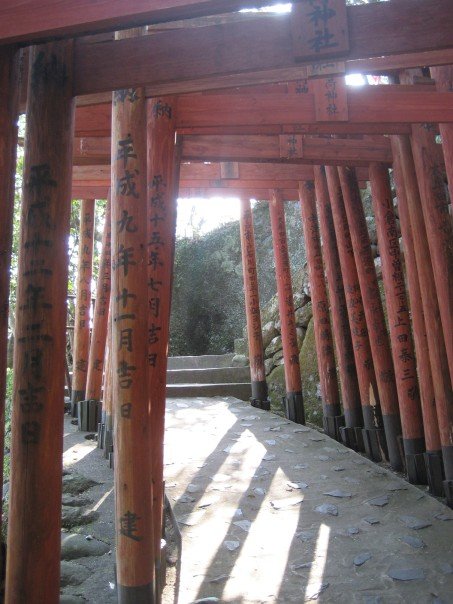 As soon as I heard this at work today, I knew it had to go on this site. It's exactly the kind of language trivia that keeps me fascinated with Japanese, despite its unforgiving brutality.
As soon as I heard this at work today, I knew it had to go on this site. It's exactly the kind of language trivia that keeps me fascinated with Japanese, despite its unforgiving brutality.(1級 studies are not progressing well)
狐の嫁入り
きつね の よめいり
kitsune no yomeiri
Fox wedding; sun-shower
Looking at both the literal translation and the application of this expression side by side, you can imagine how quickly I went running to the internet to find out what was up with this. I got all kinds of folklore-y goodness.
Turns out that this is, as Japanese wikipedia calls it, a "strangeness" of a tale that has been handed down since at least the beginning of the Edo Period (1603) and is known all over Japan, with the exceptions of Okinawa and Hokkaido, where marriage between foxes has yet to be legalized.

On certain nights, just before you fall asleep, you might see a procession of red glowing, flickering lights in the woods, a phenomenon called 狐火 in Japanese: "fox fire." Similar to what we call St. Elmo's fire, or will-o-the-wisp, it can usually only be seen from far away.
Japanese people used to say that the lights were made by a procession of 提灯 (hanging lanterns) carried by foxes on the way to a wedding (except in Tokushima-ken, where they figured the somber atmosphere was more likely that of a funeral procession).
There's even an actually recorded (which is not to say true) incident of a wedding during the Edo Period, in which a ferry-master was paid a large sum of money to commission and prepare numerous boats to ferry guests, procession style, over to the wedding. Everything went of without a hitch, but the next day, he found that all of the money he received had turned into leaves. People said that the wedding had been between the families of two Inari-shrines, famous for employing tricksy foxes as spirit-messengers.
So there's all that.
 And then the connection to weather? Well, according to the folklore, strange weather heralds fox nuptials. Depending on the region, the exact kind of weather can be different (rainbows in Kumamoto, hail in Aichi), but raining while the sun's out is mostly widely accepted as the sign, hence the expression.
And then the connection to weather? Well, according to the folklore, strange weather heralds fox nuptials. Depending on the region, the exact kind of weather can be different (rainbows in Kumamoto, hail in Aichi), but raining while the sun's out is mostly widely accepted as the sign, hence the expression.What I want to know is, if the foxes have to get married when the sun's out, what's the deal with the lantern processions at night?



